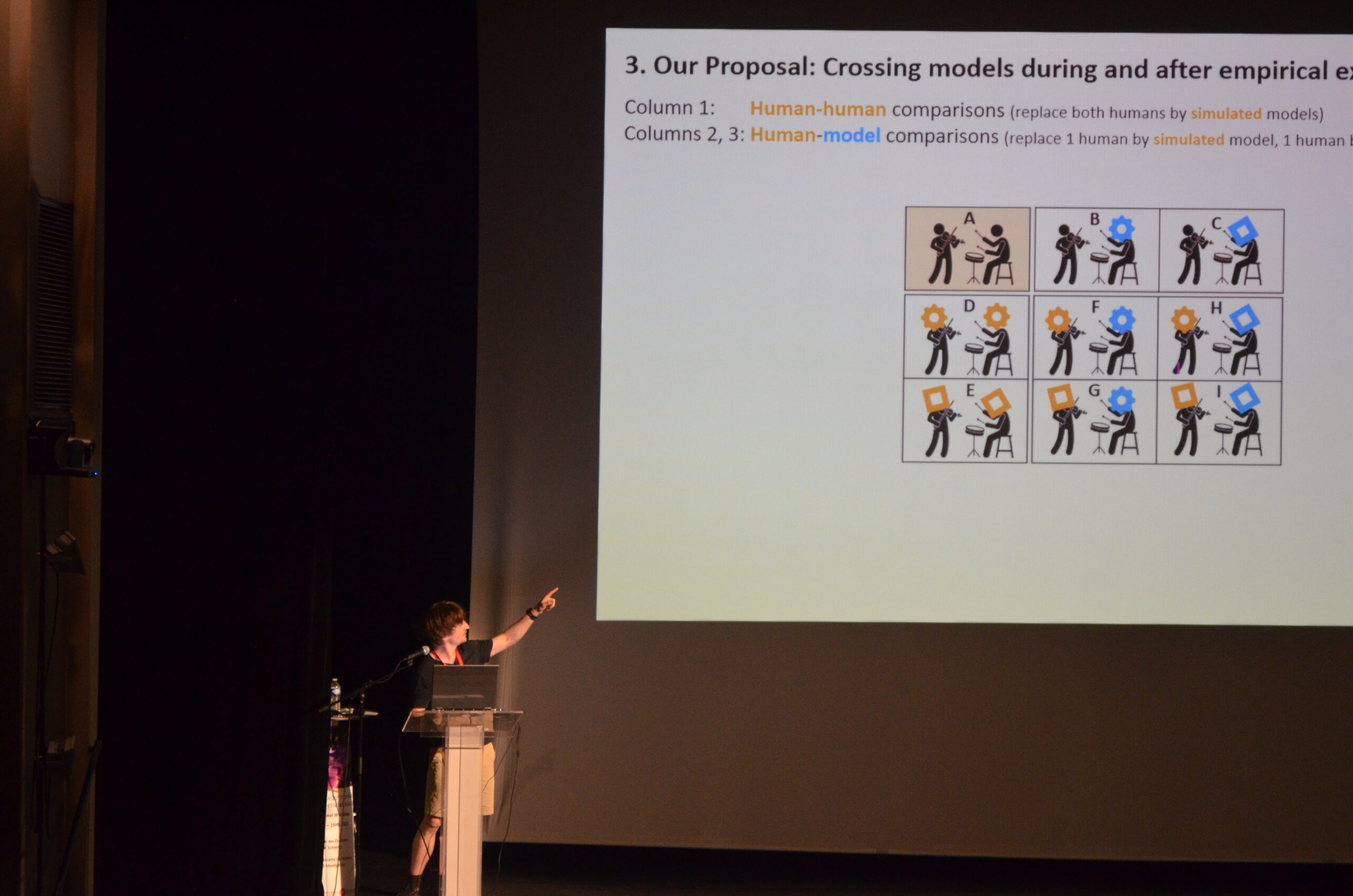In his talk, “Disentangling Human- and Model-Specific Features in Virtual Partner Interaction Paradigms,” Dr. Bavo Van Kerrebroeck, together with collaborators Caroline Palmer (McGill University) and Alexander Demos (University of Illinois Chicago), introduced a novel methodological framework for analyzing human-agent coordination.
The virtual partner paradigm—in which artificial agents interact with humans during tasks like synchronized tapping—has become central to understanding social coordination. However, current approaches often blur the lines between human traits (e.g., sensorimotor variability), model-specific dynamics (e.g., coupling parameters), and their interactions.
To address this, the researchers propose a cross-model comparison framework that systematically varies model types both during and after human-data collection. Using a case study comparing human-human and human-model dyads, the team showed how model optimization techniques can reveal:
-
Individual effects driven by either human or model properties,
-
Human-model interaction effects,
-
And the implications of these patterns for scaling to larger group settings.
This work offers a theoretically grounded approach to understanding coordination in diverse human-agent systems, with applications across cognitive science, robotics, and social neuroscience.
The presentation was part of the “3rd Team and Multi-agent Dynamics International workshop” held in Montpellier 2025, a multidisciplinary workshop bringing together experts from fields such as AI, neuroscience, movement science, and the arts to explore how collective dynamics shape interaction in both physical and virtual settings.

